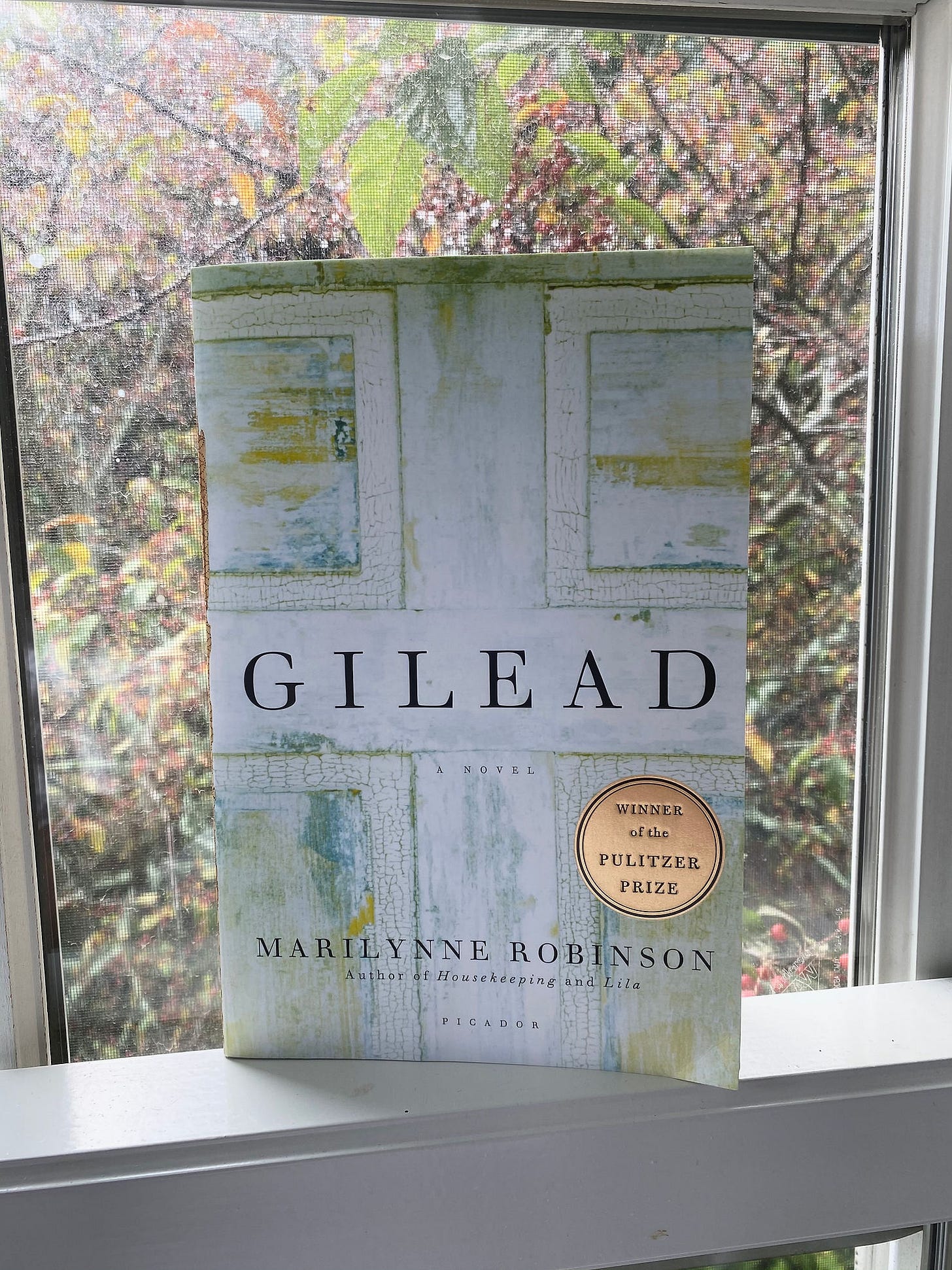Review of GILEAD
God's grace captured in black & white ...
Marilynne Robinson wrote this novel in 2004. It is the starting point for three more novels including the just published, Jack. I read her first novel, Housekeeping, when it came out. Her sentences were so clear and concise. There is little fat on their syntactical bones. Her career as a writing teacher in Iowa is a gift to all aspiring writers. The question is why it took me so long to read her first real masterpiece, Gilead? This is the novel that set her apart from the likes of Anne Patchet, Annie Proulx and Paulette Jiles. Obama apparently recognized her genius from the start. So did everybody else … except me. Housekeeping left me in a respectful, admiring but slightly chilled frame of mind. I wondered if its art was rendered at the expense of its soul. After finishing Gilead last week, I suspect that I missed the point altogether. Maybe I just envied those beautiful sentences.
Gilead is literally and figuratively about the soul and the grace of God. The narrator is a third generation Congregationalist minister in a small town in Iowa on the Kansas border that was founded and populated by abolitionists who migrated to this flat as a pancake prairie to fight slavery’s effort to takeover the Midwest. Our narrator is writing an extended letter to his young son as he struggles to understand his life in his dying days.
When I introduced Flannery O’Connor to my sophomore literature students, I worried that they would find her stories strange and alien. I chose to go right at the heart of her writing in order to illuminate the strangeness. I began a ten-year wrestling match with the concept of God’s grace, relying on movies like Babette’s Feast and even clips from Pulp Fiction to illustrate it. I was never sure if I got very far, never very sure if I was getting it, but enjoying the challenge of it and, more importantly, grateful for the important things that come up when trying to get a bead on something as profound and elusive as the grace of God. Certainly Flannery O’Connor had to go to great almost phantasmagorical lengths to illustrate her struggles with it.
Gilead is an epistolary reveal of an older man’s effort to understand, observe and illustrate the grace of God. He believes in it – that is clear. Why he believes in it is less clear and makes his last words to his young son so moving. This was the companion piece I needed years ago. Instead of O’Connor’s macabre world populated by human blindness, you get the utterly simple, late November in the plains world of a man using words, scripture, sermons and his capacity to listen. You suspect there is much he does not see. You suspect that he is, in fact, in his sincere, gracious and very literate way, a Protestant Midwestern version of one of Flannery’s blind characters. Robinson’s novels that followed Gilead reveal how much of the world around him he does not see, even the world right next to his heart. His blindness, however, is not a dark Catholic version of the sinner; rather, it is of a soul comfortable with God’s love and forgiveness. While Flannery’s grace is revealed in horror and absurdity, Marilynne Robinson’s version is revealed in a deep appreciation of our ordinary lives, in our ordinary towns and villages, amidst a nature that does not mock our blindness but helps assuage it.
Gilead
By Marilynne Robinson


